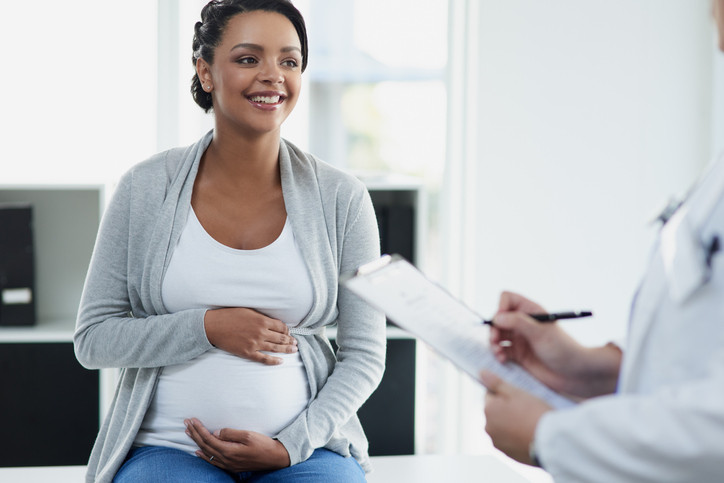
How does prostate cancer treatment affect mental health?

5 timeless habits for better health

What are the symptoms of prostate cancer?

Is your breakfast cereal healthy?

When pain signals an emergency: Symptoms you should never ignore

Does exercise give you energy?

Acupuncture for pain relief: How it works and what to expect

How to avoid jet lag: Tips for staying alert when you travel

Biofeedback therapy: How it works and how it can help relieve pain

Best vitamins and minerals for energy
Women's Health Archive
Articles
What’s causing bladder pain or burning?
Infections aren't the only conditions that can cause discomfort.
Certain urinary symptoms are quite common, particularly in women: painful burning with urination, an urgent need to urinate like you can't hold it (urinary urgency), and urinating frequently (urinary frequency).
These symptoms can be caused by any of the following conditions.
Could your breast implants be making you sick?
Many women are reporting symptoms they believe are associated with their breast implants. Sometimes called breast implant illness, this combination of vague symptoms—such as hair loss, fatigue, anxiety, and depression—is also associated with a number of other conditions, including menopause, thyroid problems, and autoimmune conditions. Researchers are now working with patient advocacy groups to better understand the problem. Experts recommend that women understand the potential risks and benefits of breast implants before having the surgical procedure.
What can you do to reduce the risk of birth defects?
Women who are hoping to become pregnant want to do everything they can to ensure that their babies will be as healthy as possible, which means following recommendations to minimize the possibility of birth defects.
Vaccines for women: Before conception, during pregnancy, and after a birth
Abnormal uterine bleeding in peri- and postmenopausal women
When should you see a clinician about excessive or unexpected bleeding?
Abnormal uterine bleeding (AUB) is a common problem for women of all ages, accounting for up to one-third of gynecologic office visits. The two main types are heavy bleeding that occurs at an appropriate or expected time, such as a heavy menstrual period (menorrhagia), and any type of bleeding that occurs unexpectedly (metrorrhagia). The absence of regular menstrual periods for several months (amenorrhea) is also considered an abnormal bleeding pattern. AUB can be tricky to identify, because what's normal depends on a woman's reproductive age.
Hormones and breast cancer: What you should know
New research again links increased breast cancer risk to longer use of hormone therapy.
The link between hormone therapy and breast cancer has been recognized for years. But an analysis published Aug. 29, 2019, in The Lancet has added some additional information to the discussion. The analysis looked at 58 studies that included information on the type and timing of hormone use in individual women, and their body mass index. Researchers began gathering the studies in 1992 and continued until 2018.
We asked Dr. Wendy Chen, an assistant professor of medicine at Harvard Medical School, to help us sort through both the old and new information on hormone use and breast cancer and what it means for women considering starting hormone therapy.
Gene tests for all women with breast cancer could save money — and lives
Research we're watching
Doing genetic tests on all women with breast cancer, as compared with the typical practice of just testing those with a family history of the disease, is worth the extra cost, according to a study published online Oct. 3, 2019, by JAMA Oncology. The study authors say their findings should prompt the expansion of genetic testing to all women diagnosed with breast cancer. It's clear that testing breast cancer patients for genetic variants that raise breast cancer risk (such as BRCA1, BRCA2, and PALB2) would enable doctors to identify more women who carry these variants and who might benefit from preventive strategies. But researchers wondered whether doing so would be too costly. To answer that question, they used a computer model to analyze data from more than 11,000 women. They found that not only would the cost of testing all American women with breast cancer be balanced out by later savings on health care services, but also that just one year of testing could prevent an estimated 9,700 new cases of breast and ovarian cancer and 2,400 deaths.
Image: voinSveta/Getty Images
Hot flashes and heart health
This symptom is common in menopause, but frequent or persistent episodes could be a sign of higher risk for heart attack or stroke.
Researchers have begun to pay more attention to cardiovascular risk factors that are unique to women, such as early menopause (before age 40) and certain pregnancy complications. Recently they turned their attention to a common menopausal symptom that affects up to 85% of women: hot flashes.
Study results presented in September 2019 to the North American Menopause Society from the Study of Women's Health Across the Nation (SWAN) found that women who experience frequent or persistent hot flashes may be more likely than women who don't to experience a heart attack or stroke or other serious cardiovascular problems. (Researchers defined "frequent" hot flashes as having them six or more days in the previous two-week period. Women with "persistent" hot flashes reported those frequent hot flashes at 25% or more of study visits.)
Is bladder training really beneficial?
Ask the doctors
Q. I suffer from mild urinary incontinence. A friend suggested that I try bladder training. Is this a real treatment?
A. Yes, some women with urinary frequency and overactive bladder might benefit from bladder training. The idea behind bladder training is to teach your body to respond more appropriately to bladder signals.

How does prostate cancer treatment affect mental health?

5 timeless habits for better health

What are the symptoms of prostate cancer?

Is your breakfast cereal healthy?

When pain signals an emergency: Symptoms you should never ignore

Does exercise give you energy?

Acupuncture for pain relief: How it works and what to expect

How to avoid jet lag: Tips for staying alert when you travel

Biofeedback therapy: How it works and how it can help relieve pain

Best vitamins and minerals for energy
Free Healthbeat Signup
Get the latest in health news delivered to your inbox!
Sign Up











